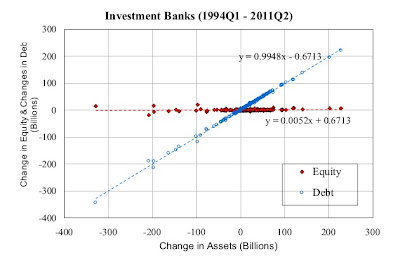Forecasting recessions in the United States with the yield curve

There is a large literature on the relationship between the yield curve and recessions that started in the 1980s as a result of the inability of macroeconomic models to explain sudden downturns in economic activity. In this box, we review the literature on the predictive power of the yield curve, with a particular focus on the United States, and compute the current implied probability of a recession using data ranging from 1953 to 2018. We find that a recession in the US is not likely soon, but the recent flattening of the yield curve should be monitored carefully. Recessions have often been associated with an inversion of the yield curve, moving from a positive slope to a negative one. A positive slope of the yield curve comes from the fact that investors require a premium for holding longer maturity bonds (the term premium) or expect the short-term rates to be higher in the future. A negative slope is a more unusual event – it has occurred less than 10 per cent of the time in the U...
